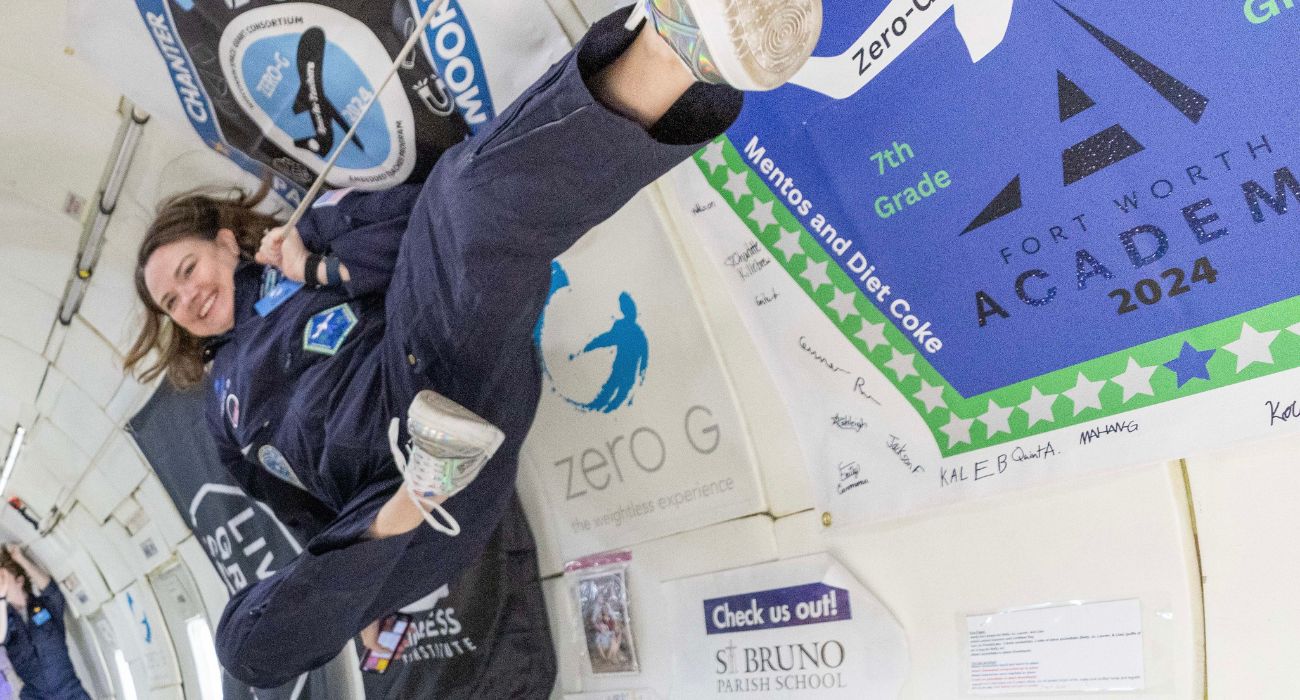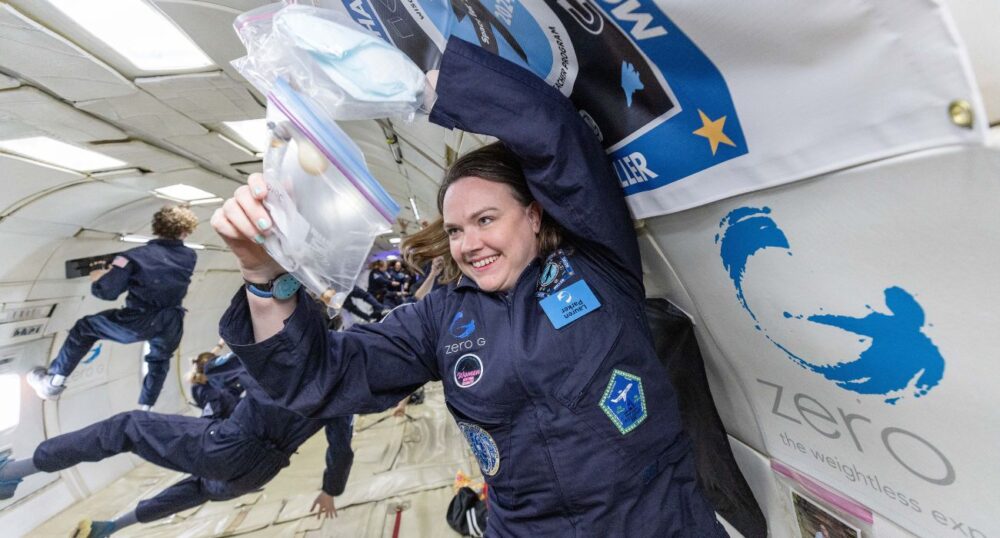One Fort Worth teacher was one of eight selected nationwide for the opportunity of a lifetime — climbing aboard a zero-gravity aircraft.
Lauren Parker, a science instructor for grades 7 and 8 at Fort Worth Academy, was invited to test her students’ experiments on ZERO-G’s G-Force One aircraft in Florida this month. The vessel simulates the zero-gravity conditions of space.
Speaking with The Dallas Express, Parker explained that in order to become eligible for the unique opportunity, she first had to apply to the Embedded Teacher Program. Through a partnership between the Wisconsin Space Grant Consortium (WSGC), the International Space Station Laboratory, and the ZERO-Gravity Corporation, the program creates opportunities for both middle and high school teachers to translate classroom learning into real-world experiences.
Parker attended a workshop in September 2022 to learn more about teaching students about the science of microgravity. She then taught several lessons, after which the students developed their very own experiment ideas.
“They were really excited to be part of this. We watched several videos, including a music video by OK Go, which was shot in microgravity, and that really got them excited about the possibility of designing experiments for the same platform,” Parker shared.

In December 2022, the students developed a proposal for WSGC, and that same month it was accepted. The students got to work building their experiments, and after almost a year and a half, they were finally able to be put into action.
Parker told The Dallas Express about the experiments she got to conduct in the weightless environment of the aircraft. These included the iconic Mentos and Diet Coke reaction, as well as using capillary wicks to facilitate water movement through a lunar regolith simulant, which offers insight into potential water management techniques on celestial bodies.
During her flight, Parker was able to record the data collected from the students’ experiments and report the results back to them.
“I love giving students access to authentic, real-world research. By having this opportunity, they were able to develop more teamwork and problem-solving skills because there was a real-world application,” Parker said.
During the flight, there were 30 parabolas, each of which granted passengers roughly 30 seconds of microgravity. Parker remarked that those first parabolas were the most memorable part of the experience.
Parker described being weightless as “the strangest feeling but a ton of fun,” adding that it was more disorienting than expected.
“I also had the opportunity to learn a little more about the research some of the university and NASA scientists were performing on the flight, so I can share that information with my students as well,” Parker noted.
Seven other teachers in the program were accompanying her on the flight with their own set of classroom experiments. According to Parker, the data collected from all the experiments will be publicly available for other teachers to use.
Due to the nature of the flight, some of the students’ experiments, such as testing the dynamics of cooking pancakes and exploring the peculiar behavior of oobleck dancing on a speaker without gravity, were unable to be tested.
To date, more than a dozen teachers have flown on ZERO-G’s G-Force One aircraft, according to WSGC’s website.
As previously reported by The Dallas Express, various reports have suggested that U.S. students have fallen behind their counterparts living abroad in education, especially in the areas of science, technology, engineering, and math (STEM). Some experts have even flagged this lull as a potential national security threat.
“This is not an educational question alone,” said Josh Wyner, vice president of The Aspen Institute, according to The Hechinger Report. “It’s about knowledge development, environmental protection, better cures for diseases. Resolving the fundamental challenges facing our time requires math.”
Two of the largest public school systems in North Texas — Dallas and Fort Worth ISDs — have been putting up lackluster academic results.
The 2021-2022 accountability reports from the Texas Education Agency showed that only 43% of Dallas ISD students scored at grade level or above in reading, 39% scored at grade level or above in math, and 37% scored at grade level or above in science. Students at Fort Worth ISD performed even worse that year, with 38% achieving at grade level or above in reading, 25% in math, and 28% in science.

